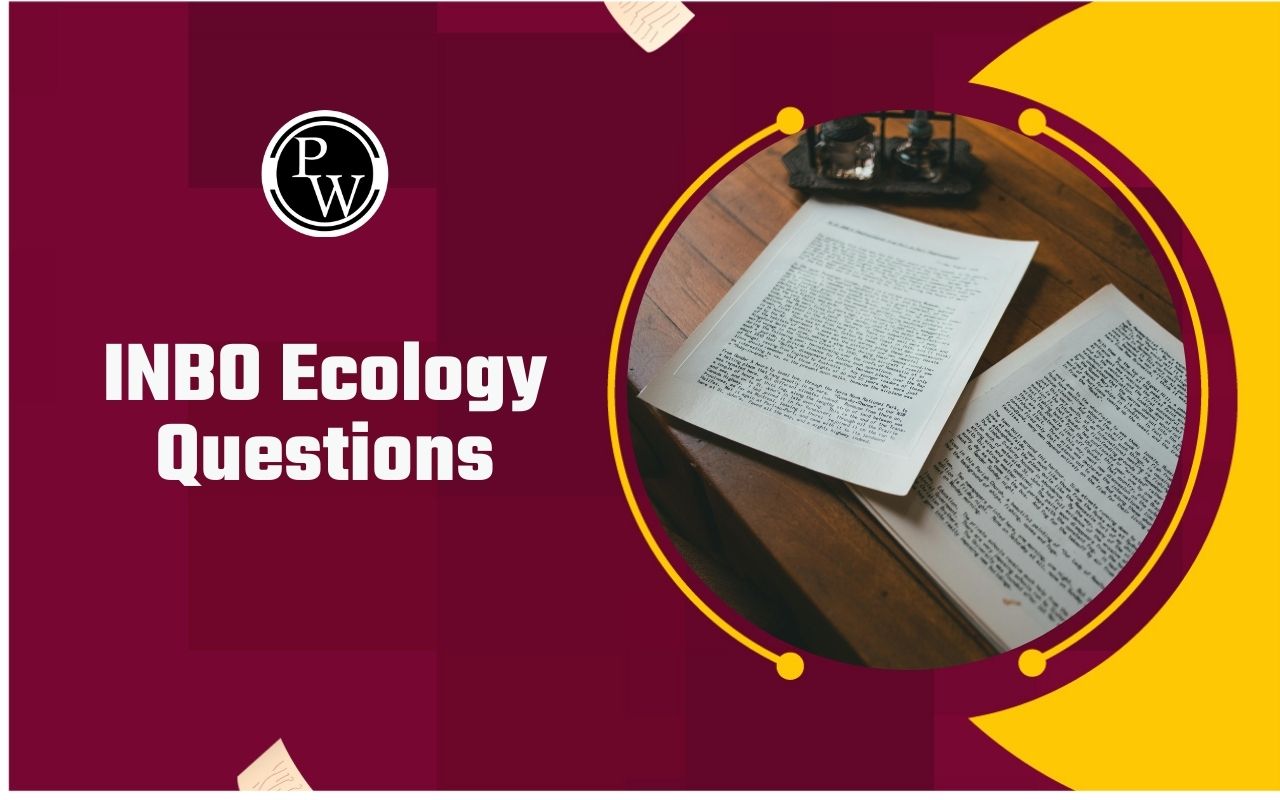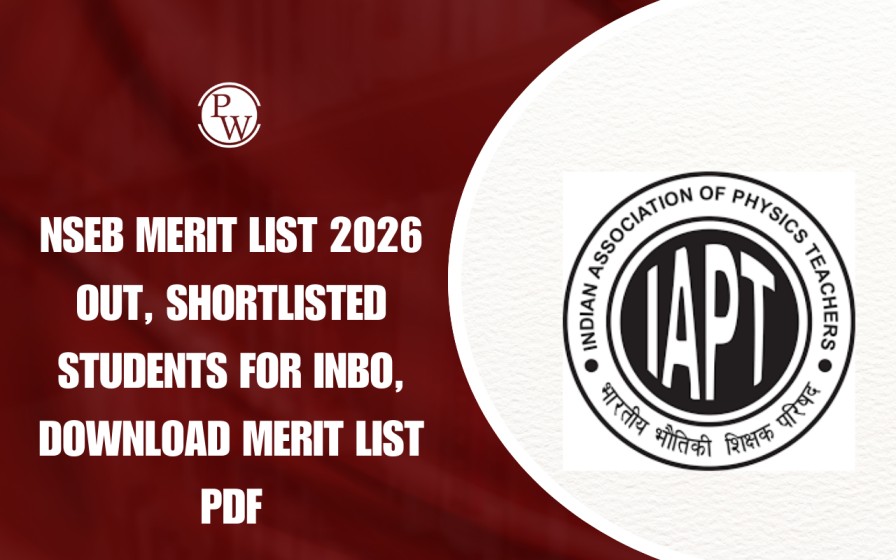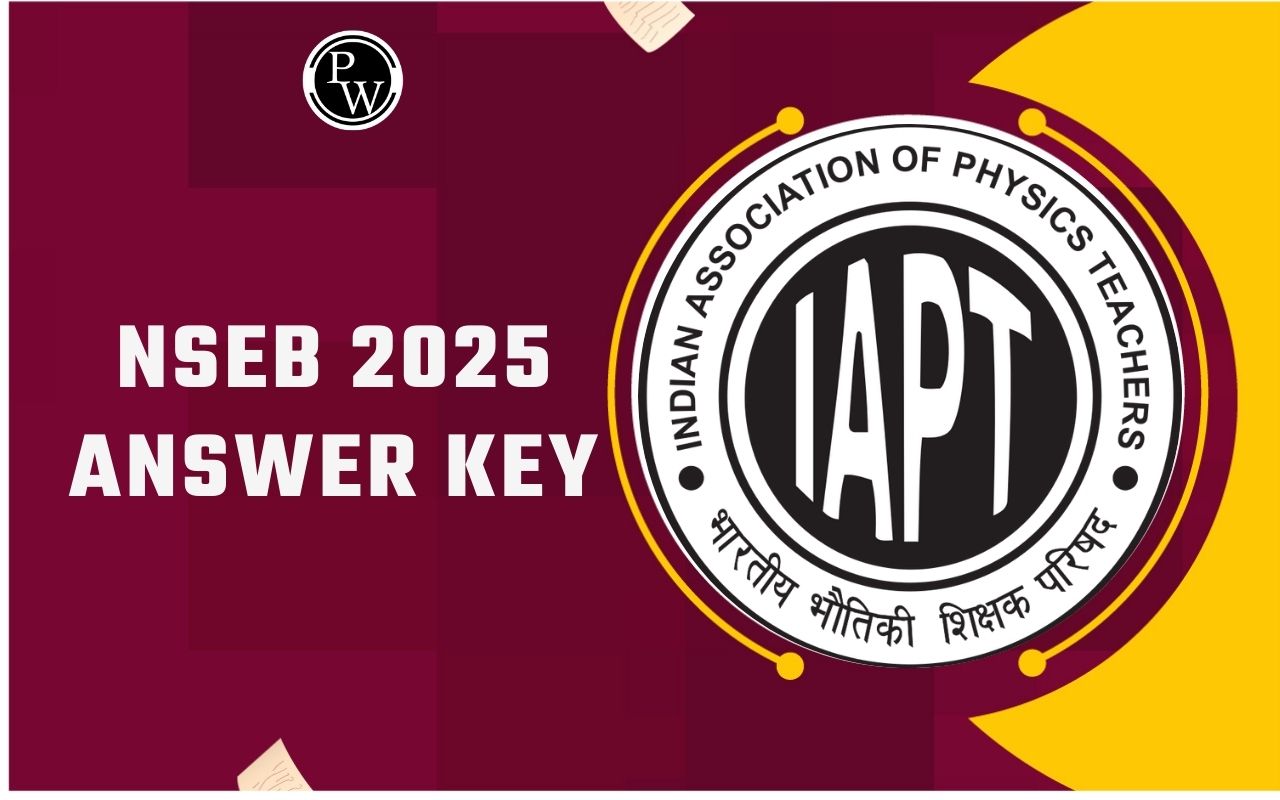
NSEB (National Standard Examination in Biology) serves as the first stage of the Indian National Olympiad Programme, which ultimately selects students to represent India at the International Biology Olympiad (IBO).
It is organized by the Indian Association of Physics Teachers (IAPT) in collaboration with the Association of Teachers in Biological Sciences (ATBS) and the Homi Bhabha Centre for Science Education (HBCSE).
The NSEB exam emphasizes conceptual understanding and application of biological concepts, encouraging scientific curiosity and excellence among young minds.
The NSEB is a prestigious academic competition in India, designed to identify and nurture talent in biology among pre-university students.
All About: Olympiad
NSEB Exam Pattern 2025
The NSEB Exam consists of objective type/multiple choice questions. Here is a detailed look at the NSEB Exam Pattern 2025:
-
Maximum Questions- There will be a total of 60 questions in the test.
-
Maximum Marks- The question paper will be a total of 216 marks.
-
Type of Questions- There will only be multiple-choice or objective questions.
-
Duration- The exam will last 2 hours (120 Minutes).
-
Question paper will be in English & Hindi
-
Part 1:
-
48 questions with one correct answer.
-
Each correct answer awards +3 marks.
-
Each incorrect there will be a deduction of 1 mark.
-
Part 2:
-
12 questions with multiple correct answers.
-
A score of +6 marks is awarded if all correct options are selected without marking any incorrect options.
-
There will be no negative marking.
Also Read: Difference Between Maths and Science Olympiad
NSEB Eligibility Criteria 2025
Students must satisfy the NSEB eligibility criteria mentioned below:
-
The student must be an Indian citizen first.
-
The NSEB Exam is designed for students in grades 9 to 12.
-
Date of birth between July 1, 2006 and June 30, 2011, both dates inclusive.
-
Must be residing and studying in India on or before November 30, 2023. Must be studying in the Indian school system on or before November 30, 2023. OR Must be studying in the Indian school system on or before 30 November 2024.
-
Must not have completed (or intend to complete) the Class 12 board examinations before 30 November 2025.
-
Must not have commenced (or intend to commence) studies at a university or equivalent institution before 1 June 2025.
-
Must not appear in NSEJS 2025.
NSEB Syllabus 2025
The National Standard Examination in Biology (NSEB) Syllabus for the academic year 2025-26 encompasses a range of topics primarily from Class 11 and 12 Biology.
The NSEB Syllabus is designed to assess students' understanding of these topics at a senior secondary level. Each correct answer awards three marks, while incorrect answers incur a penalty of one mark. Here we have provided the topic-wise details of the syllabus.
-
Diversity Of Living
-
Structural Organization in Animals and Plants
-
Cell: Structure and Function
-
Plant Physiology
-
Human Physiology
-
Reproduction in Organisms
-
Sexual Reproduction in Flowering Plants
-
Human Reproduction
-
Reproductive Health
-
Principles Of Inheritance And Variation
-
Molecular Basis of Inheritance
-
Evolution
-
Human Health and Disease
-
Strategies for Enhancement in Food Production
-
Microbes in Human Welfare
-
Biotechnology – Principles and Processes
-
Biotechnology and Its Applications
-
Organism and Population
-
Evolution
-
Environmental Issues
Books for NSEB Exam Preparation
For students preparing for the National Standard Examination in Biology (NSEB), a variety of books are recommended to enhance understanding and performance.
-
NCERT Biology for Class 11 and 12: These are foundational texts that cover the core concepts required for the NSEB exam.
-
Pradeep’s A Text Book of Biology for Class 12 by P.S. Dhami: This book provides detailed explanations and is well-structured for understanding complex topics.
-
S.Chand’s Biology for Class XII by B.P. Pandey: A comprehensive resource that includes various diagrams and illustrations essential for biology studies.
-
Trueman’s Elementary Biology by K.N. Bhatia and M.P. Tyagi: This book is particularly useful for NEET aspirants as well and covers a wide range of topics relevant to the NSEB syllabus.
-
Biology by Raven & Johnson: A more advanced book that includes various biological concepts, suitable for deeper understanding.
-
Biology: A Global Approach by Campbell,Urry, Cain, Wasserman, Minorsky, Reece
-
Raven Biology of Plants by Susan E. Eichorn (Author), Ray Evert (Author)
Time Management Tips for NSEB Preparation
Effective time management is important for preparing for the National Standard Examination in Biology (NSEB). Below are detailed tips to help you optimize your study routine and perform well in the olympiad exam:
-
Prioritize Key Concepts
-
Focus on understanding core topics such as cell biology, evolution, and biochemistry rather than rote memorization.
-
Use active learning techniques like summarizing, creating concept maps, or teaching others to improve retention.
-
Create a Structured Study Plan
-
Divide the syllabus into manageable sections, prioritizing difficult topics like genetics, physiology, and ecology.
-
Allocate specific time slots for each topic daily while ensuring balanced coverage across all subjects.
-
Include regular revision sessions to reinforce concepts and avoid last-minute cramming.
-
Practice with NSEB Past Papers
-
Solve NSEB Previous Year Question Papers to familiarize yourself with the exam format and types of questions.
-
Time yourself during practice sessions to simulate real exam conditions and improve speed.
-
Use Effective Study Techniques
-
Employ the Pomodoro technique: study for 25 minutes followed by a 5-minute break to maintain focus and avoid burnout.
-
Use diagrams, flowcharts, or visual aids for better understanding of complex biological processes.
-
Stay Organized
-
Keep your study materials well-organized and maintain a checklist of topics covered.
-
Use digital tools like calendar notifications or apps to track your schedule and set reminders for study sessions.
-
Take Care of Your Health
-
Ensure adequate sleep (7–8 hours per night) to stay alert and focused during preparation.
-
Incorporate short breaks, physical activity, or relaxation techniques like meditation to recharge your mind.
NSEB Previous Year Question Papers
Common Mistakes to Avoid During NSEB Preparation
By being aware of these common mistakes and actively working to avoid them, students can enhance their chances of success in the NSEB examination. Here are some key mistakes to watch out for:
- Lack of a Structured Study Plan:
Many students begin their preparation without a clear and organized study schedule. This can lead to uneven progress and incomplete coverage of the NSEB syllabus. Establishing a detailed NSEB Study Plan that allocates time for each topic is essential for systematic learning.
- Neglecting Core Books and Resources:
Students often overlook the importance of foundational resources, such as NCERT books, which are critical for understanding core concepts. Focusing too much on Olympiad Exam reference books can create gaps in knowledge that may affect performance on the exam.
- Poor Time Management During Preparation:
Effective time management is an important aspect not only during the NSEB exam but also while studying. Students should practice distributing their time wisely across different subjects and topics to avoid last-minute cramming.
- Lack of Revision:
In the rush to learn new material, students frequently neglect to revise previously covered topics. This can result in forgotten concepts and decreased confidence. Consistent revision is necessary to reinforce learning and ensure retention of information.
- Ignoring Health:
The NSEB preparation process often leads students to neglect their physical and mental health. A balanced lifestyle that includes proper nutrition, exercise, and adequate sleep is crucial for maintaining focus and productivity during study sessions.
Skipping NSEB Mock Tests: Failing to engage in NSEB Mock Tests can hamper performance evaluation. Mock tests mirror exam conditions, aiding in identifying weak areas and enhancing time management abilities.
How to Prepare for NSEB? FAQs
How to prepare for the NSEB exam?
What is the NSEB Exam?
Who is eligible for NSEB?
What subjects are included in NSEB Olympiad?
What are the common mistakes to be avoided while preparing for the NSEB Exam?










